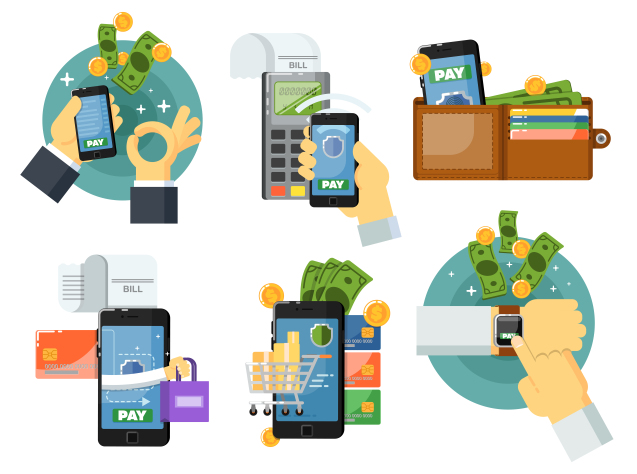The RBZ recently announced that as part of its efforts to curb what it alleges are the shenanigans going on in mobile money platforms, which have led to the tanking of the local currency’s value, it has designated Zimswitch a national payment switch which all mobile money services should be connected to by the 15th of August. This in itself is not a new idea since as far back as 2018, the then ICT minister Supa Mandiwanzira, was demanding interoperability. However, this time the whole issue has become far more heated as both the government and the RBZ has developed what is barely masked hostility towards mobile money operators (which a lot of the time just means Ecocash which is by far the largest of them all) for their alleged role in wreaking havoc on the economy.
Regardless of your opinion on the matter, one fact remains: the RBZ has just opened up the mobile money game and dealt with Ecocash’s quasi-monopoly what could turn out to be a heavy blow. Now you could lament in sympathy with the good folk at 1906 Borrowdale Road or you can look on the bright side and see all the exciting new opportunities that have just opened up for everyone else.
Ecocash may lose its best advantage
The biggest reason why competitors have always found it difficult to gain even a single foothold over Ecocash is the network effect i.e. the company already has a lot of users which makes its new users far much likelier to find other parties to transact with as compared to its fledgeling competitors. This makes people more likely to sign up on it than other platforms. For its competitors, most of them with much lower budgets than Ecocash (Cassava or Econet), this has been an inescapable catch-22 situation. However, it may soon matter very little which platform you sign up on since the payment switch will allow you to send money to anyone and pay anywhere across service providers.
Another one of Ecocash’s biggest advantages used to be its extensive agent network. However, as long as we continue to have cash shortages, these agents’ primary function of depositing money into and withdrawing it out of mobile wallets is moot. Even if said shortages ease they will most likely still be enough time for new providers to gain some market share before they completely disappear.
The market needs that new players can tackle
Ecocash may be a formidable competitor but as a platform is far from perfect and having almost no competition to motivate it to improve since its inception hasn’t helped its cause. New companies which want to elbow their way into the industry have to recognise and address some of Ecocash’s shortcomings on their platforms. These shortcomings are therefore actually opportunities for everyone else, so I have listed some for you here.
The user experience
Even for a USSD interface, Ecocash’s leaves a lot to be desired. To begin with, despite being supposedly a mobile phone version of a wallet, something as basic as checking your balance requires way too many steps. All the shortcut codes in the world don’t address the problem that the platform can be difficult to use even for its core functions of sending and receiving money—even more so since the present cash shortages have seen its increased adoption by people of all ages and backgrounds.
Many users of mobile money services will also find a platform which allows them easy access to their transaction histories to be quite a boon. This is either still difficult or costly on existing platforms so new players can address this glaring oversight and win over customers. For smartphone users, there is a lot that can still be done to take advantage of the powerful capabilities of these devices when they are used to access mobile money platforms.
Alternative business models
Some platforms can also choose to win people over through the adoption of unconventional business models. For instance, one could start a platform that does away with most or all transaction charges. This could all then be financed by serving adverts to the users; after all, since the service will have access to their users’ transaction histories they will know who to advertise a car to and who will find an advertisement for a payday loan more useful. Such a company could even just use the gathered user data to discover the kind of information which market researchers would find useful.
More types of wallets
With a national payment switch in place which all mobile money services are compelled to connect to, it then becomes possible for mobile wallets to be offered by entities other than banks and mobile network operators. Ambitious companies could offer wallets which can be accessed through apps or the internet and they will be able to send or receive money to and from other service providers as long as they can get connected to Zimswitch.
Potential challenges
Unfortunately, there are still a lot of potential challenges that stand in the way of this imaginary fintech utopia. Some of them can even turn out to be insurmountable for many but the best-funded of companies.
Regulations
The Zimbabwean government, its various agencies and regulatory bodies do love their regulations as evidenced by the sheer amount of statutory instruments that continue to be churned out even during lockdowns. When Ecocash was first established, Econet was able to navigate the then existing laws with relative ease because they were written by people who could barely imagine something like it. In 2020 the laws have been updated and will most likely continue to be updated to the disadvantage of smaller startups who may wish to venture into this space. Licenses will be required and those licenses will require expensive fees and even more stringent conditions.
Zimswitch reliability
Smaller wallet providers will depend heavily on Zimswitch for interoperability with other platforms. This means that any of the outages which we have come to accept as a fact of life everywhere in Zimbabwe will disproportionately affect those platforms whereas services like Ecocash with their large user bases will allow people to continue transacting with each other internally.
Interconnection fees
As mentioned before, the smaller wallet providers will depend heavily on the payments switch for their users to interact with the more numerous ones on other platforms. Unfortunately, if a lot of their users’ transactions have to rely on the payment switch, they will be affected by the required interconnection fees—after all Zimswitch is a company which needs to generate a profit. If these fees are too high, transacting using these alternative platforms can become prohibitively expensive and uneconomical for many.
Sabotage by MNOs
Regardless of the type of electronic wallet, mobile networks will serve as the main means of access for many. This means that whether your service is accessed via SMS, USSD or the internet, it is extremely vulnerable to sabotage by operators—remember that all of these operators will also own mobile money services of their own and some might be tempted to play dirty.








